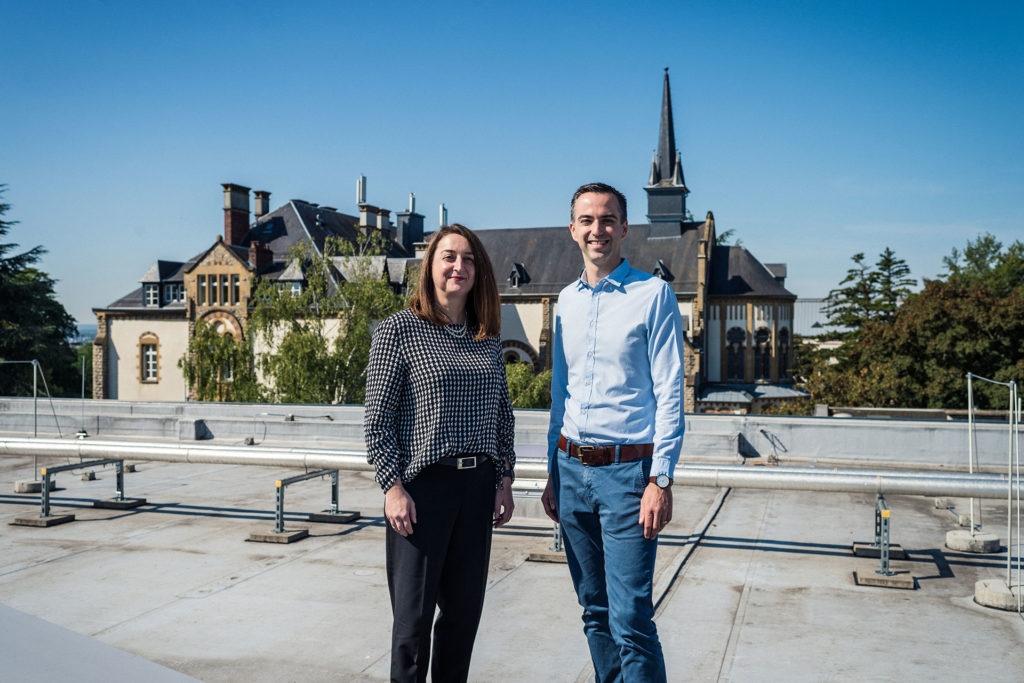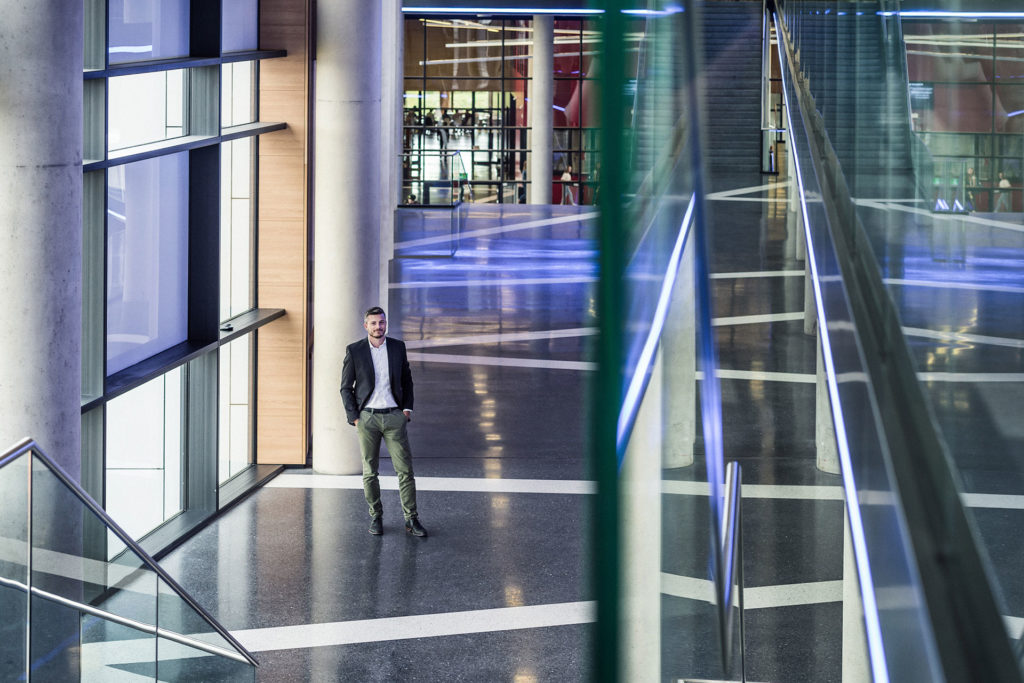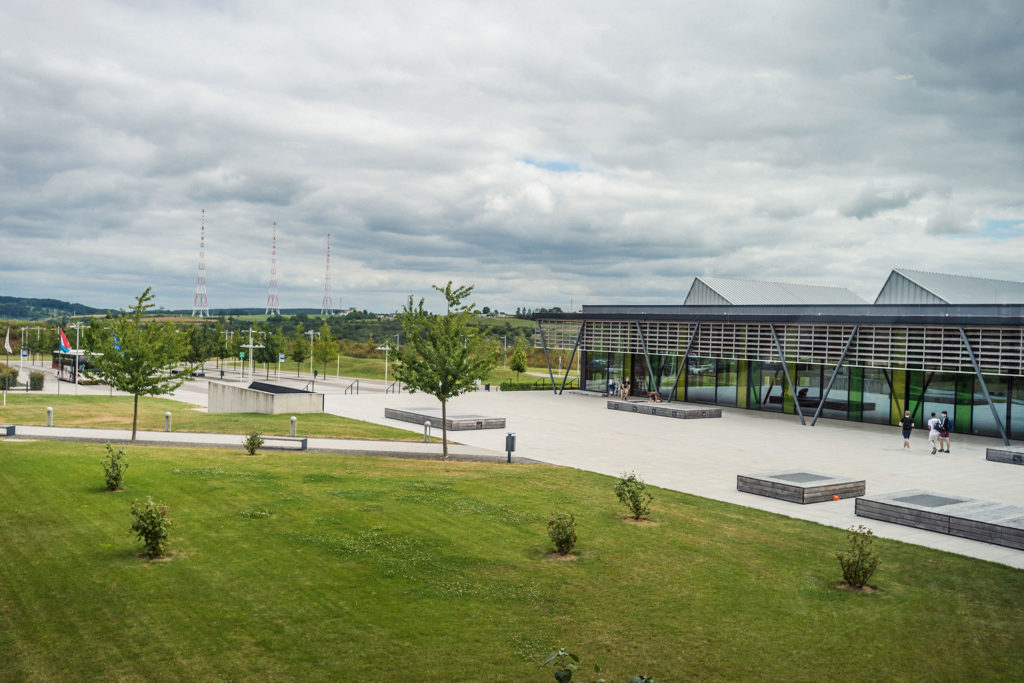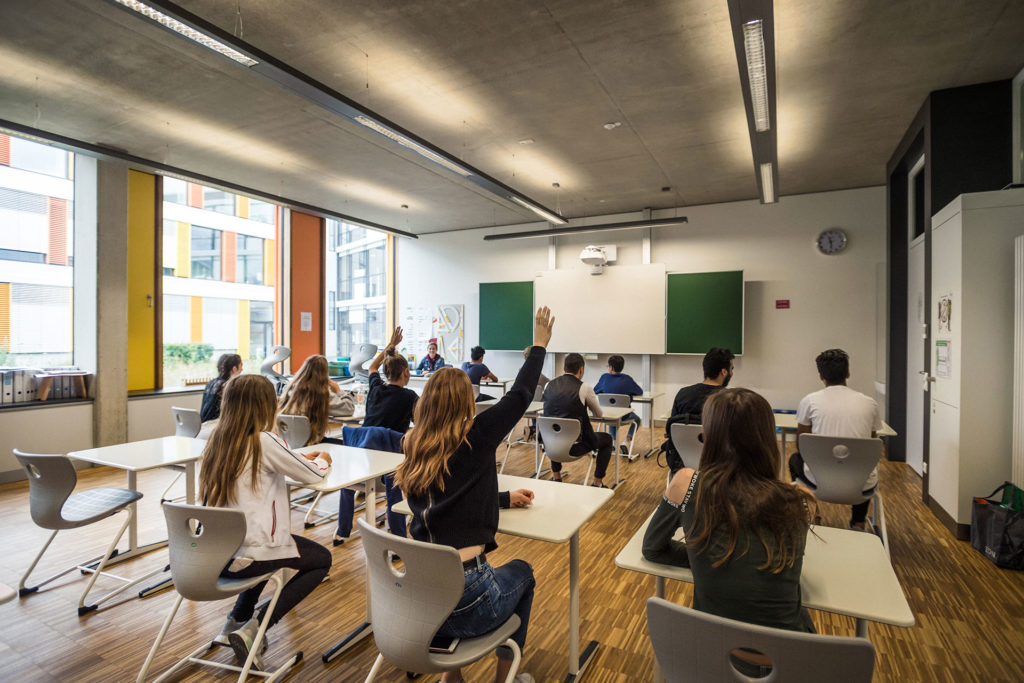Luxembourg has been leading the way in international education for decades and offers a vast selection of state-subsidised private schools to cater for the growing expat community. Since 2011, the country has been investing heavily in its free public school offering in english, with the creation of three free international schools offering the cambridge international curriculum, the international baccalaureate and the european baccalaureate. An additional three new schools based on the european school system, offering english, german and french sections are set to open this month. We talk to the school directors of the international school michel lucius and international school Junglinster to find out more about the growing offer.

“When I say to parents that it’s free, you don’t have to pay fees, no inscription, no enrolment, and school books are free, they are a bit sceptical. They think something that doesn’t cost money couldn’t be high quality,” says Tom Nober, Director of International School Junglinster. The school, opening in September, situated in one of the most popular commuting areas in the country, is already proving popular with expats. It offers the highly regarded European Baccalaureate which is accepted by universities across Europe.
“In September, we have families relocating from US, UK, Russia, and India, as well as pupils coming from expat families already settled in Luxembourg. We still have places in our English and German sections, except Primary Year 2, but where there is a substantial demand we will consider creating additional classes,” he adds.

We know when our students leave, they go to leading universities. I think our responsibility, as a school is to make sure we provide them with the environment where they can learn and get to that high level.
PRIORITY FOR EXPAT FAMILIES
The primary school has a capacity of 250 students and is located in a new state of the art building directly adjacent to the secondary school. The selection process is transparent with priority given to students who are coming from abroad.
“We liaise closely with families relocating from overseas and prioritise their needs. For students living in Luxembourg, we select them by where they live first of all, and we also look closely at the dossier applications to see if our school makes the best sense for the student. We also conduct interviews to make sure that students accepted in the primary and secondary cycle are a good fit for our school.”
SMALL CLASS SIZES AND SUBSIDISED AFTERSCHOOL CARE
Luxembourg offers the highest teacher salaries and smallest class sizes in Europe (OECD Stats), which has supported Nober with his mission to recruit a new team of teaching staff. At Junglinster International School classes are capped at 15 in primary school and 25 in secondary school.
“If you want the next generation to be a generation that is fit to be a responsible member of society, you have to invest in education, and investing in education means keeping classes as low as possible but in a reasonable margin.”
The school offers primary classes (from age 6 to 11) as well as secondary classes (from age 12) in German and English-speaking sections. Starting in Primary Year 1, students choose a second language, either French/German or English. For pupils arriving after the first year of primary school, extra support is given in the second language to enable the child to catch up. Pupils can also get help with homework at the state subsidised afterschool club, part of the full day wrap around care available on campus.
EXTRA SUPPORT FOR LANGUAGE LEARNING
If we need to give a student extra lessons in French, then he gets more lessons in French. The major asset of the Luxembourg system is the multi-language system, and we want to give the opportunity for kids to learn a second and a third language which is very important. We have to think global and to give them the opportunity to speak more than one language.”

The major asset of the Luxembourg system is the multi-language system, and we want to give the opportunity for kids to learn a second and a third language which is very important.
The school playground will likely be a mix of languages as the international English and German streams start out in September, but the aim is for all pupils to be able to connect with each other and the community in Luxembourgish.
“What’s very important for me is to build bridges from the international school to the national schooling system, that is something we are now working on. We want our students to connect with the local community, and that’s the reason we are offering a lot of activities together with the local Luxembourgish school. We offer golf, tennis, drama lessons, technology, science clubs, where students from the international school and the local Luxembourgish school could be together in a class, and I call that a linguistic pool where you as a student can learn a language very quickly by doing fun stuff and not being in the classroom.”
HIGHLY RECOGNISED INTERNATIONAL CURRICULA
Hence Luxembourgish is taught as the language of integration and communication from year one onwards. Students who complete the English primary cycle have the choice of entering the secondary school to work towards the European Baccalaureate, as well as moving to study for the IB at Lycée Athenee (see article in edition March 2017), or to move to GCSE and A-levels at Michel Lucius International School which has offered free English language education in secondary since 2011.

“It’s essential that we have an internationally recognised curriculum and that the benchmarks are internationally recognised.
International School Michel Lucius has been awarded Cambridge International School status and is approved to offer Cambridge Primary, Cambridge Secondary, including Cambridge IGCSE and Cambridge AS and A level.
“It’s essential that we have an internationally recognised curriculum and that the benchmarks are internationally recognised,” explains Pascale Petry, Director, International School Michel Lucius.

SECURING PLACES AT WORLD LEADING UNIVERSITIES
“We know when our students leave, they go to leading universities. I think our responsibility, as a school is to make sure we provide them with the environment where they can learn and get to that high level. Our standards are very high, and I think it’s through innovative teaching, and in working together that we can provide this quality teaching environment.”

What often surprises new families coming from overseas is that there is no waiting list for after-school care. We work in particular with a non-profit organisation that provides daycare from seven in the morning, until seven in the evening.
The secondary school boasts a modern new campus, in the Limpertsberg district of the city. There is no catchment area which allows students from across the country to attend, with easy access to the free bus network which transports pupils directly to the school campus. “Every child has a wide choice of A-levels, and we offer all the main subjects. We have sciences, maths, English, art, music, computer science, history, geography, economics, business. We are an UCAS centre as well, which means students can take their UCAS Undergraduate application for entry into British universities through us. We can make sure that whatever our students choose as a subject combination is possible in this school, and we support students through exams and the university application process.” This year’s graduates are not only heading for universities in the UK but across Europe.
“A lot are going to study in the UK, but we also have a lot of students heading to the Netherlands, and Scandinavian countries who offer degrees in English, as well as some even joining the University of Luxembourg.”


STATE-OF-THE-ART CLASSROOMS REFLECT NEW TECHNIQUES OF TEACHING
The primary school opened last year, with shuttle buses provided free of charge from convenient locations across the city to enable parents to avoid the school hour rush. The school management team has created a coherent educational approach from Year 1 to the A levels, giving learners the opportunity to benefit from a coherent curriculum and a consistent pedagogical approach.
“We provide our learners with an environment that fosters their critical thinking skills and allows them to become confident actors in a global community. For example, children follow an innovative Philosophy programme from Year 1 and we highly value the learning and teaching of scientific inquiry skills,” explains Primary school head, Daniel Redinger.“The outlook is to have three classes of between 15 to 20 pupils per year group. Each class has a homeroom but we also have science rooms, philosophy rooms, music, art, ICT, so we have great opportunities for the kids.”
LANGUAGES: OPENING A WORLD OF OPPORTUNITIES
The school teaches the Cambridge curriculum for all core subjects except for languages which follows the benchmarks of the Common European Framework of Reference (CEFR) for Languages to ensure that the language curriculum is taught to international standards.
Subsidised wrap around care is available for parents at all Luxembourg state schools. “What often surprises new families coming from overseas is that there is no waiting list for after-school care. We work in particular with a non-profit organisation that provides daycare from seven in the morning, until seven in the evening. We also offer holiday care which alleviates the strain of working parents.”

I think what we have is a real opportunity to have an international school but also offer and bring in some of the linguistic diversity and history of Luxembourg.
While most of the teachers are native English speakers, a substantial number of Luxembourgish school teachers, have studied in the UK to Masters level. Redinger went through the Luxembourgish school system himself, going on to complete a Masters in English Literature and Linguistics, and PhD in Linguistics with a focus on multilingualism at the University of York. Having acquired substantial experience in the UK and at St George’s International School Duisburg-Düsseldorf, Redinger moved back to Luxembourg three years ago.
“I think what is interesting for us as a school as well when it comes to recruitment is that we have a lot of teachers now, like me, who have been in the international school circuit and it’s big, but it’s in some ways a small world as well. A lot of these teachers are very well connected, and it gives us more connections across different schools around the globe.”

